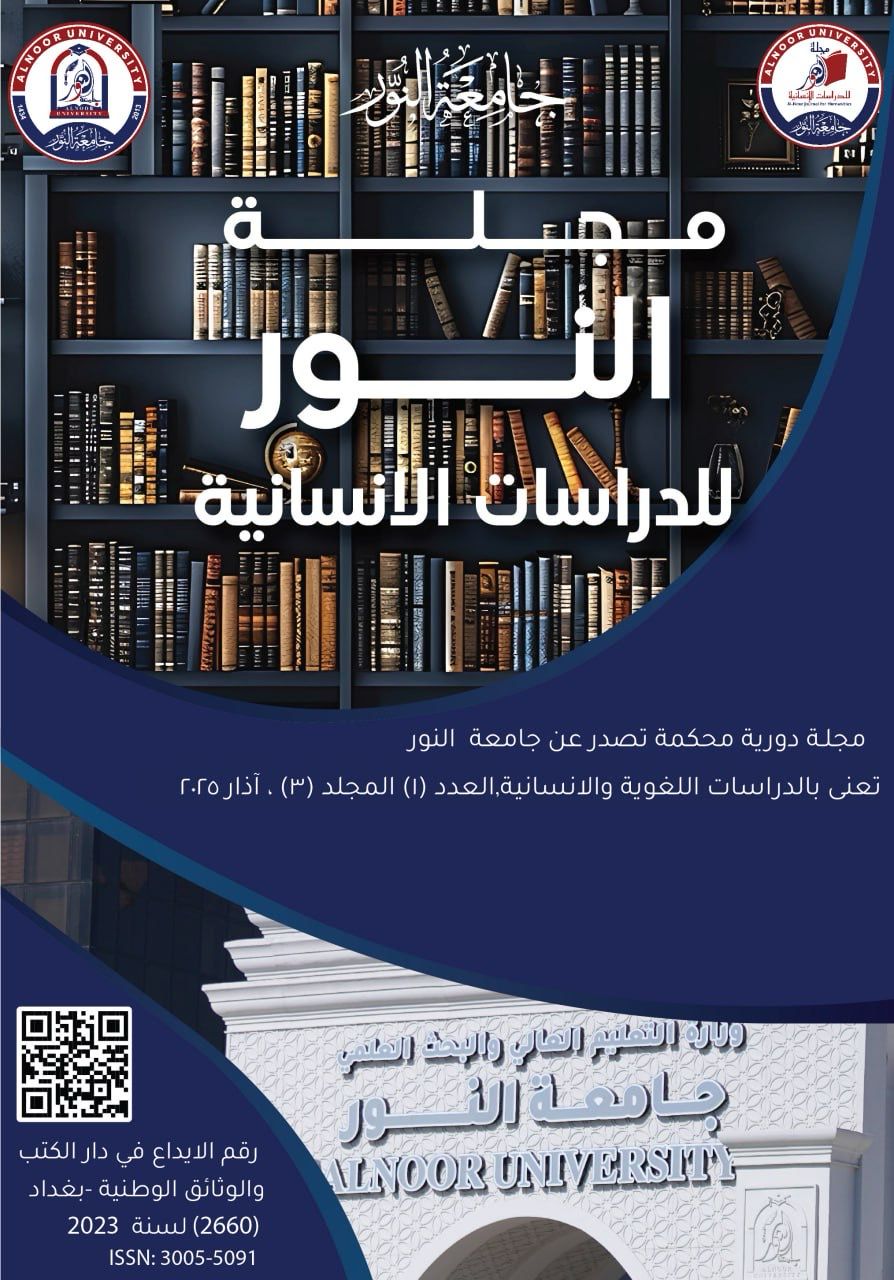Abstract
Emancipatory discourse is a form of communication that empowers marginalized voices, encourages collective action, and reinforces values such as unity, accountability, and solidarity. The study explores the role of emancipatory discourse in political speeches, focusing on its ability to address societal crises, promote social justice, and strengthen social cohesion. Adopting Van Dijk's (1988. 1995, 2005) socio-cognitive model, the study examines the strategies used to foster unity, accountability, and resilience in political speeches, and the role of political leaders in shaping social structures through emancipatory communication. The analysis focuses on a speech by Iraqi Prime Minister Mohammed Shia' Al-Sudani following Al- Hamdaniya fire tragedy. The study identifies strategies such as Norm Expression and Authority, which reinforce societal norms and credibility, while National Self-Glorification and consensus promote national unity and social cohesion. The study emphasizes the importance of empathetic and inclusive communication in addressing systemic failures and inspiring collective action, particularly in divided contexts like Iraq. The study concludes that the speech effectively addresses the Hamdaniya tragedy using inclusive language, promoting solidarity, accountability, and hope, demonstrating the power of words to heal and inspire change.
Keywords
discourse analysis
Empowerment
Social Cognitive
social structures
Van Dijk
Abstract
يُعدّ الخطاب التمكيني شكلاً من أشكال التواصل الذي يمكّن الأصوات المهمشة، ويشجع العمل الجماعي، ويعزز قيماً مثل الوحدة والمسؤولية والتضامن. تستكشف الدراسة دور الخطاب التمكيني في الخطابات السياسية، مع التركيز على قدرته على معالجة الأزمات المجتمعية، وتعزيز العدالة الاجتماعية، وتقوية التماسك الاجتماعي. باعتماد النموذج الاجتماعي الادركي لفان دايك (1988، 1995، 2005)، يدرس البحث الاستراتيجيات المستخدمة لتعزيز الوحدة والمسؤولية والمرونة في الخطابات السياسية، ودور القادة السياسيين في تشكيل البنى الاجتماعية من خلال التواصل التمكيني. يركز التحليل على خطاب رئيس الوزراء العراقي محمد شياع السوداني في أعقاب مأساة حريق الحمدانية. تحدد الدراسة استراتيجيات مثل التعبير عن المعايير والسلطة، التي تعزز المعايير المجتمعية والمصداقية، في حين أن التمجيد الذاتي الوطني والإجماع يعززان الوحدة الوطنية والتماسك الاجتماعي. تؤكد الدراسة على أهمية التواصل التعاطفي والشامل في معالجة الإخفاقات النظامية وإلهام العمل الجماعي، خاصة في السياقات المنقسمة مثل العراق. وتخلص الدراسة إلى أن الخطاب يعالج مأساة الحمدانية بشكل فعال باستخدام لغة شاملة، معززاً التضامن والمساءلة والأمل، مما يظهر قوة الكلمات في الشفاء وإلهام التغيير.
Keywords
اجتماعي ادراكي، التمكيني، فان ديك، تحليل الخطاب، البنى الاجتماعية
